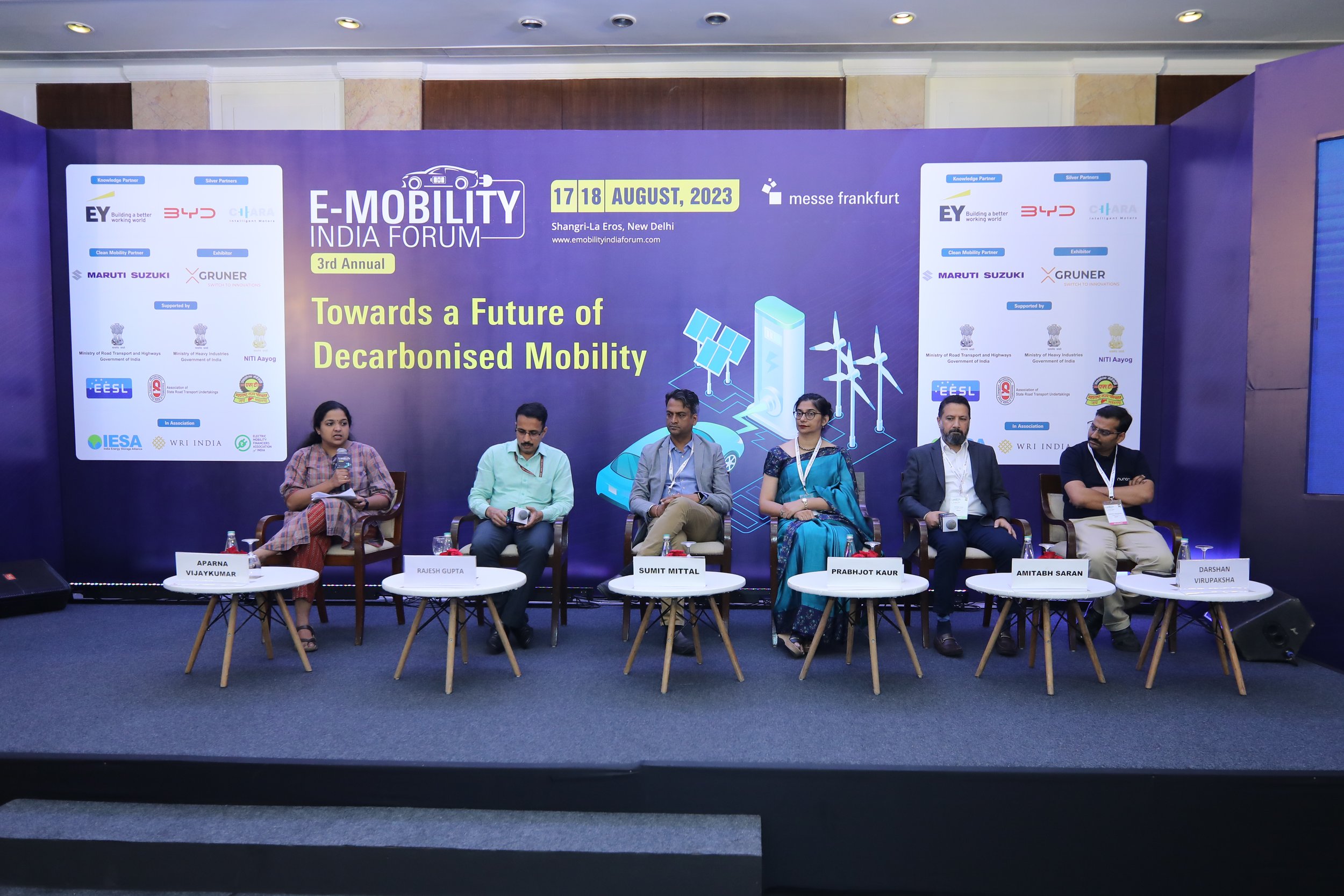EVENT RECAP: Towards Low-Carbon Pathways for India's Mobility (E-Mobility India Forum)
Hosted under the Forum for Decarbonising Transport
.
Hosted under the Forum for Decarbonising Transport .
About the session
On 18 August, WRI India organized ‘CXO Conclave: Towards Low-Carbon Pathways for India's Mobility’ to forge collaborative pathways for India’s transport sector decarbonization.
Note: The CXO (C-Suite) conclave included officials in leadership positions in industry, such as like CEO, COO, CFO, and etc.
The session, 'Towards Low-Carbon Pathways for India's Mobility,' of CXO Conclave at the 3rd E-Mobility India Forum, was hosted by the NDC-Transport Initiative for Asia (NDC-TIA) as part of the Forum for Decarbonizing Transport on August 18, 2023.
India’s electric vehicle (EV) market is projected to grow at a compounded annual growth rate of 49% from 2022 to 2030, reaching 1 crore units by 2030, as per the Economic Survey of 2022-23.
To fuel this growth and drive decarbonization in transportation, robust public-private collaboration is essential, supported by strong policies and a thriving EV startup ecosystem. This session was a step towards strengthening the stated collaboration as it brought together national and subnational policymakers and industry leaders.
Highlights from the Session
Holistic EV Ecosystem Growth: India needs a long-term EV ecosystem commitment via policy initiatives to boost industry confidence and investment appetite for market growth.
India’s E-Mobility Modeling: Amid ongoing modeling efforts to assess India's e-mobility transition, cities and states must create granular scenarios for improved resource planning and investments.
Battery Swapping Framework: India needs a robust framework to mainstream battery swapping infrastructure. Battery must be considered a fuel and not just an asset to maximize the benefits of EVs.
Circular Battery Economy: A circular economy is pivotal to realize the benefits of a low-carbon economy. A battery ecosystem ensuring second-life use strengthens circularity and reduces residual value risks.
Second-Life Battery Standards: Standardization and testing mechanisms must be developed to ensure techno-commercial feasibility of second life battery applications. This can be achieved through better collaboration between policymakers, original equipment manufacturers, battery analytics service providers, etc.
Multi-stakeholder Cooperation: Strategic multi-stakeholder collaborations, spanning subnational, national and global geographies for knowledge sharing and amplifying efforts for an improved EV ecosystem.
Payment Security: For heavy vehicles, a payment security mechanism (PSM) can ensure participation from a wide range of lenders. The existing PSM could also be applied to current e-bus operations.
EV Financing and Data: Policies, financial instruments, and data sharing measures must be developed to enhance financing accessibility for driver-cum-owners of EVs.
Expanding Tax Incentives: The Government of India has incentivized the purchase of EVs through reduced taxes. This needs to be extended to batteries and battery swapping applications to scale benefits.
Private Bus Charging Incentives: Most of bus operations in India are managed by private operators. For the electrification of private buses, public charging infrastructure should be incentivized. Opportunity charging could be established at inter-state bus terminals (ISBTs), benefiting both private buses and cars.
Author: World Resources Institute
The session was organized by NDC-TIA’s India component team under the NITI Aayog-led Forum for Decarbonising Transport. Images from GIZ and WRI India.

